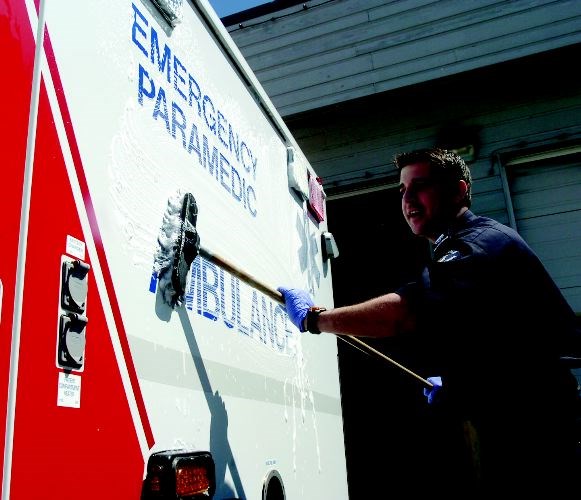In the midst of a slew of new health funding, the Ministry of Health announced on Monday the addition of 21 new full-time paramedic positions serving Northeast B.C., the Central Interior and Castlegar.
The boost in staffing will see an additional six paramedics hired in 100 Mile House, four in Williams Lake, eight serving Dawson Creek and Fort St. John, and four in Castlegar. In addition, an additional ambulance will be added in Williams Lake, while two will added to serve the northeast communities.
The additional personnel in the northeast will also serve the communities of Chetwynd, Tumbler Ridge, and Hudson's Hope.
Monday's announcement followed last week's launch of a surgical strategy, which the province touted as a plan to reduce critical wait times for patients awaiting hip and knee replacement surgery.
In a phone interview with the Citizen, Minister of Health Adrian Dix said the three regions were identified as most in need of emergency health services personnel.
"These are three areas that have been, in the past, significantly underserved," Dix said.
"They give us stability of service, they allow us to recruit."
Dix said the fact that the positions will be full-time will help ensure that personnel stay in the region. He said part-time paramedics often leave regions when full-time positions become available elsewhere.
"What we've seen over a generation is a bit of a cultural change in communities. People who used to do ambulance and paramedic work used to also have other full-time positions and this is something extra that they would do," Dix said.
But Hans Dysarsz, of the group B.C. Helicopter Emergency Rescue Operations Society (HEROS), said the increase in paramedics does not reflect the urgency of the need for trained emergency service personnel in the region.
"It really is a feeble, unfortunate, slow response and I think the NDP government will feel it in the polls in the next election," Dysarsz said.
By Dysarsz's estimate, the province is in need of an additional 2000 paramedics, as well as a further 150 ambulances. He said the Northern Health region is also woefully underserved in terms of advanced life support ambulances, which are staffed by advanced care paramedics, trained to provide more advanced emergency care, such as cardiac care and intubation.
"We don't have that capability in rural B.C. at all. You have one ALS ambulance in Prince George, one in Kamloops, one in Kelowna. It's a joke," Dysarsz said.
According to BC HEROS, B.C. has 22 ALS ambulances compared to Alberta's 258.
Dysarsz believes the root of B.C.'s deficit in paramedic staff can be traced back to the 1974 Emergency Health Services Act, which he said established B.C. Emergency Health Services staff as the sole personnel legally able to operate ambulances in the province.
Dysarsz points to the system in Alberta, which allows non-profit organizations such as the Shock Trauma Air Rescue Service (STARS) to transport sick and injured personnel to hospitals, as a model for allowing communities to address shortfalls in emergency health personnel.
The system in Alberta, however, also has its critics. STARS relies on a fundraising lottery for a third of its revenue. The head of the Health Sciences Association of Alberta, the union representing the province's paramedics, stated in a February 2017 interview with the CBC that emergency health services should be fully and sustainably funded by the province. He pointed to the B.C. Emergency Health Services as an example of a sustainable, fully-integrated air ambulance system.
While Dix acknowledged the need to address the shortage of ALS ambulances in the province, he said the B.C. Emergency Health Services is recognized as being a regional leader.
"Some of those comparisons are fair and some are not the same, I would say, between the two provinces. B.C. has a more cohesive, comprehensive service. They have a multitude of providers in Alberta and levels of care. That said, this is the kind of response you'll see and you're going to see overtime, which is focusing on improving service in the interior of B.C," Dix said.
"People have high expectations and I think they should."



